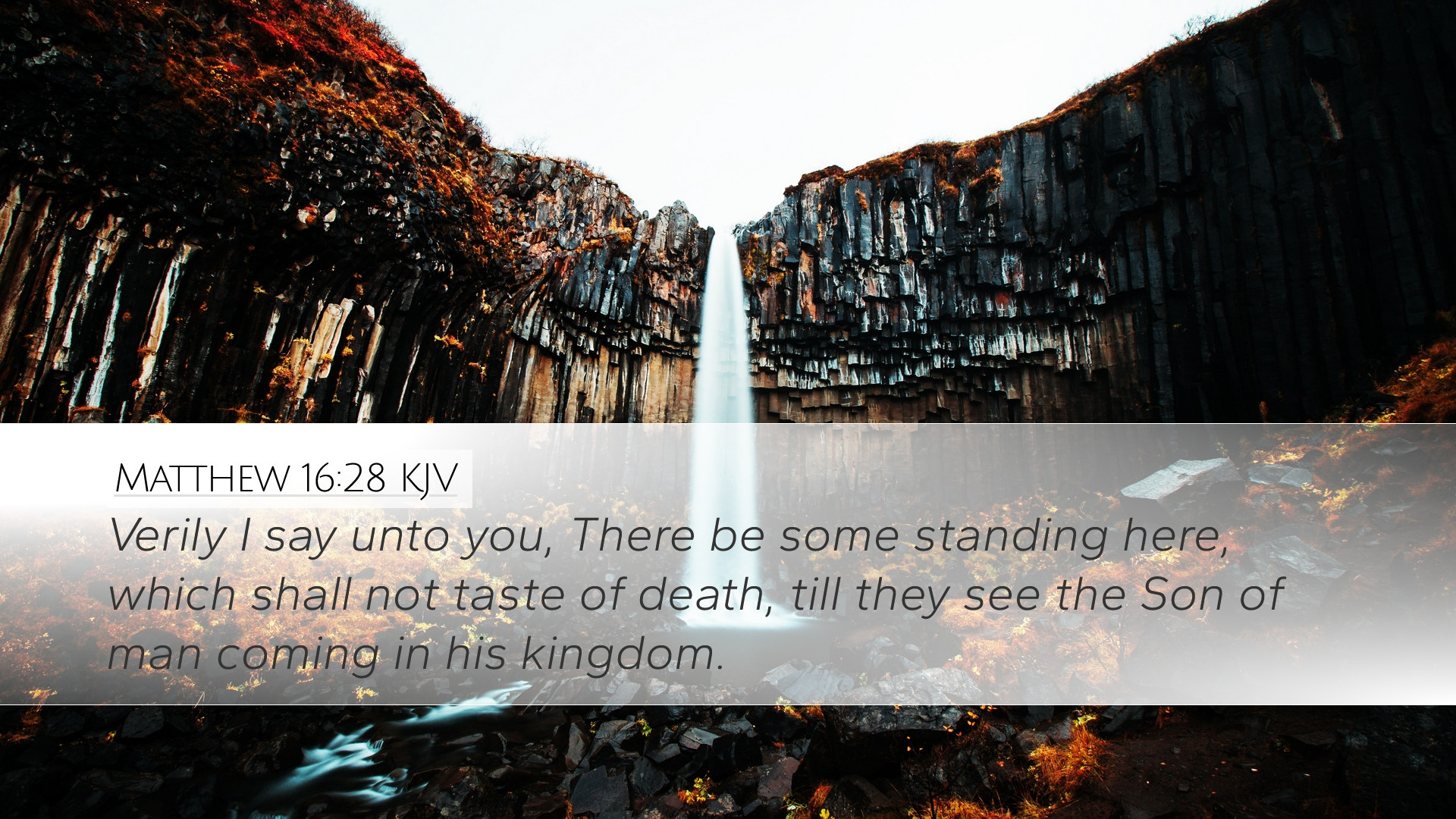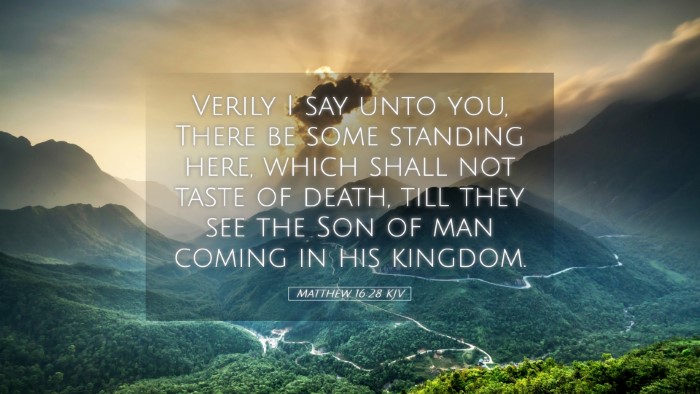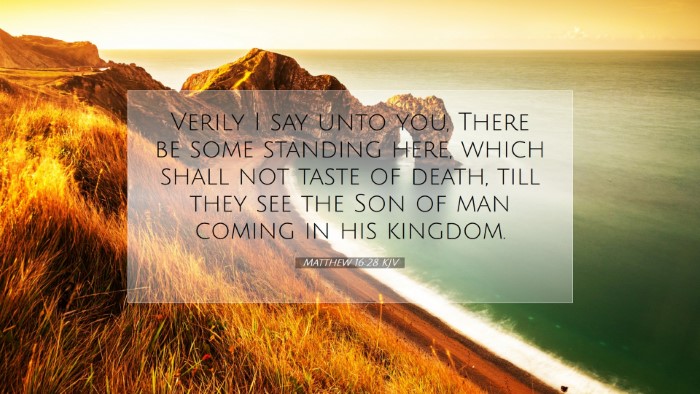Commentary on Matthew 16:28
Matthew 16:28 states: "Verily I say unto you, There be some standing here, which shall not taste of death, till they see the Son of man coming in his kingdom."
Introductory Overview
This verse serves as a transitional statement that introduces themes of Jesus’ authority, the nature of His kingdom, and the imminent transformation of His followers. Commentators like Matthew Henry, Albert Barnes, and Adam Clarke provide valuable insights that shed light on the meaning of this passage, its implications for the disciples, and its theological significance.
Contextual Analysis
Prior to this proclamation, Jesus asks His disciples who they believe He is, leading to Peter's confession of Jesus as the Messiah. In this context, the verse emphasizes the reality of Christ's impending glory and the transformative promises associated with His kingdom.
Matthew Henry’s Commentary
Matthew Henry emphasizes the assurance communicated in Jesus’s words: "Verily I say unto you" reflects the certainty of Christ's promises. He observes that some disciples, who were present, would witness events that were extraordinarily divine—likely referring to the Transfiguration, Pentecost, and the establishment of the Church.
- Henry highlights the concept of kingdom, noting that Jesus speaks of a spiritual kingdom rather than a temporal one. The witnessing of Christ’s kingdom is tied to recognizing His divine authority.
- Furthermore, he suggests this statement is double-edged: for some, witnessing the glory of Christ would lead to eternal life, while for others, it would reveal the consequences of rejecting Him.
Albert Barnes' Insight
Albert Barnes provides a particular focus on the phrase "shall not taste of death." He interprets this as Jesus referring to the transformations that the disciples would experience through their faith and subsequent actions.
- Barnes argues that this might refer to the experience of the disciples during the Transfiguration (Matthew 17:1-9), directly following this passage, where Peter, James, and John visibly witnessed a revelation of Christ’s glory.
- He interprets "taste of death" not only in physical terms but also in spiritual ones, asserting that through believing in Christ, one escapes the ultimate death that sin brings.
- This commentary connects to the assurance that believers, regardless of earthly death, are invited into a transcendent life through their faith, exemplifying the Kingdom's power at work in the present world.
Adam Clarke’s Commentary
Adam Clarke offers a deeply analytical approach, asserting the prophetic nature of Jesus's statement. He notes the eschatological implications and how this shapes the understanding of the Kingdom of God.
- Clarke emphasizes that the reference to not tasting death until witnessing the Son of man coming in His kingdom may pertain to the events of the resurrection and Pentecost, marking the inauguration of the kingdom.
- He discusses the temporality of the disciples' situation, drawing parallels to Christian experiences today—that while we live in the flesh, we have a promise of witnessing God’s glory in every generation.
- His commentary underscores a hopeful expectation, motivating followers to see beyond their immediate struggles towards the eternal perspective that Christ promises.
Theological Implications
This verse is rich in theological implications, affirming the presence of God’s kingdom here on Earth through Christ. The expectation set forth initiates a call to action for believers, urging them to live in light of this truth.
- Prophetic Hope: The promise given indicates that the disciples would experience transformative moments that confirmed Jesus as the Messiah.
- Spiritual Awareness: This verse encourages believers to awaken to the reality of their faith and its impact in the present world.
- Life Beyond Death: It emphasizes the notion of eternal life, promising that through Christ’s kingdom, death is not the end, but a passage into His everlasting presence.
Conclusion
In summary, Matthew 16:28 is a testament to the authority of Christ and His promise concerning the coming of His kingdom. The insights from public domain commentators provide a rich tapestry of understanding that reveals both the immediate and eternal significance of this promise. For pastors, students, theologians, and Bible scholars, this verse offers profound truths that inspire deeper faith and a commitment to living out the realities of Christ’s kingdom in our lives.


